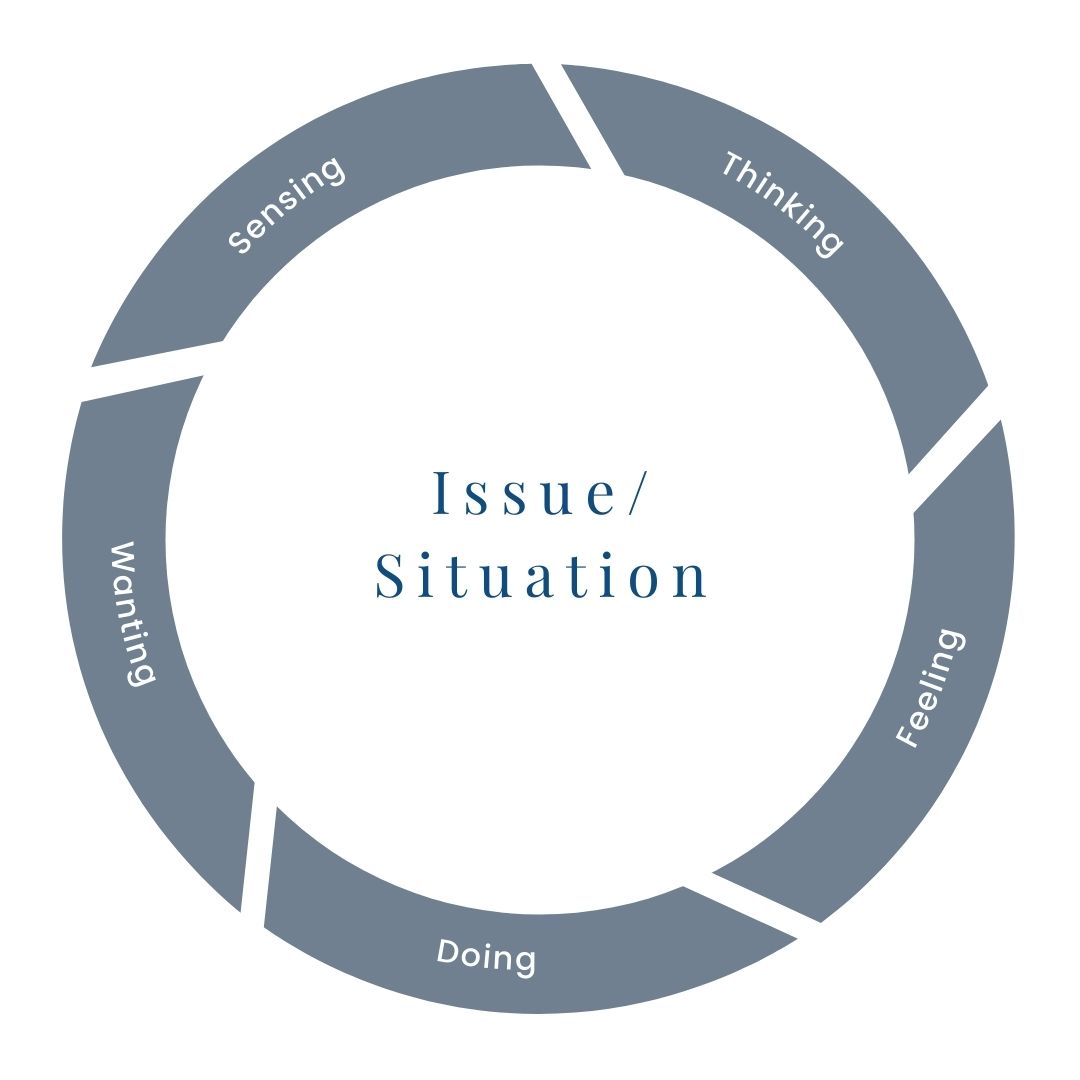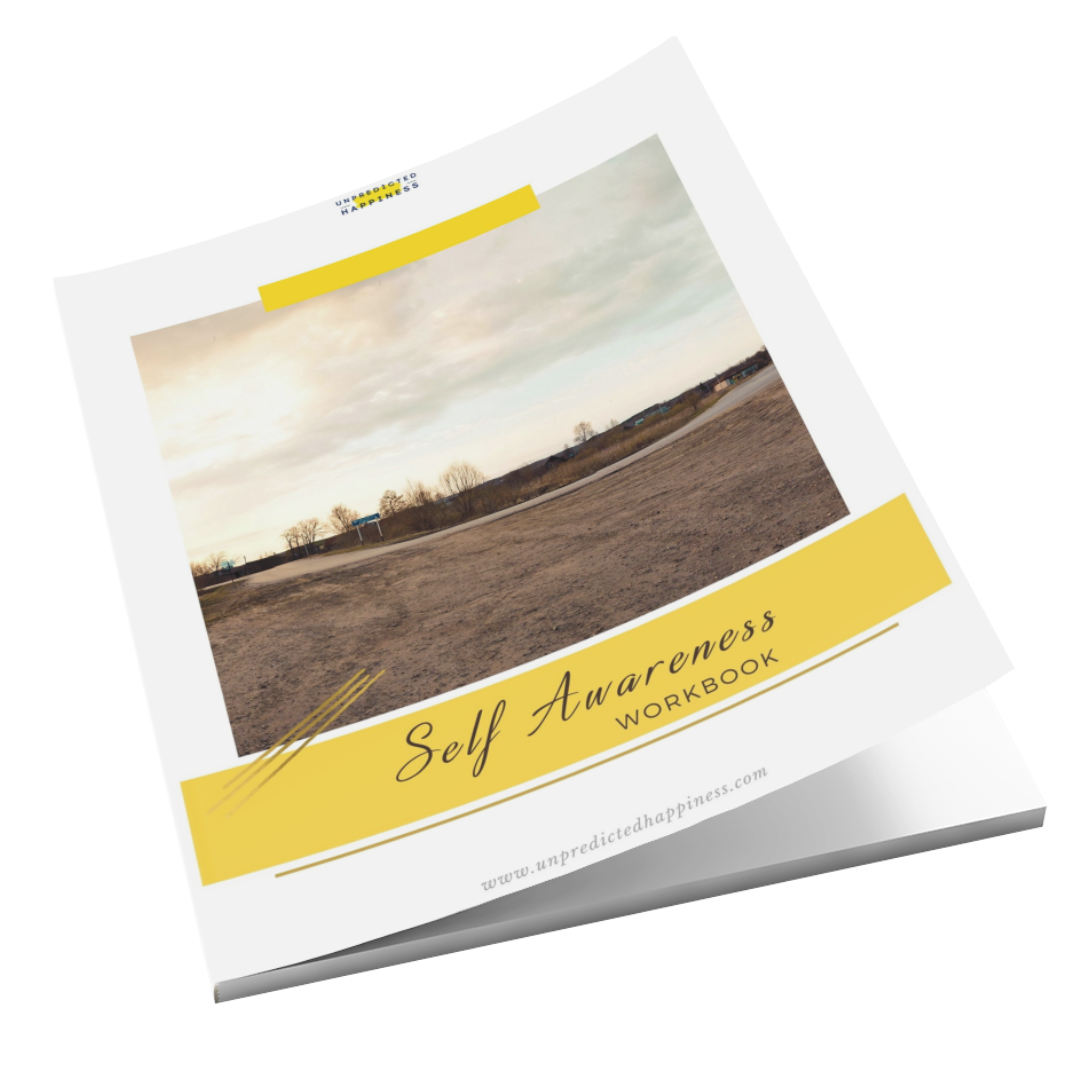You Should Practice More Awareness If You want To Be Happy
Awareness is an essential skill that we can cultivate to help us progress on our personal development journey, and we could all use a little more of it.
In our stressful, modern lives, it's easy to react passively to our environment and fracture opportunities to connect. Possessing emotional intelligence and regulating our emotions should be the most valued skills; self-awareness is the cornerstone of that intelligence.
What is awareness?
It's a bit of an intangible word and open to a somewhat broad interpretation.
Let's start by looking at the different definitions and finding a common thread to define awareness.
Definition
Merriam Webster : The quality or state of being aware: knowledge and understanding that something is happening or exists.
Dictionary.com: The state or condition of being aware; having knowledge; consciousness.
Cambridge:
Knowledge that something exists, or understanding of a situation or subject at the present time based on information or experience.
What Does It Mean?
Awareness is a perception of a situation or fact.
The quality or state of being aware: knowledge and understanding that something is happening or exists
We train our minds to witness a bit deeper than the surface level with awareness.
There are two main areas of awareness: Personal/Self Awareness and Social Awareness.
Why It's Important
Awareness is about recognizing that just because a thought appears in our mind, we are not that thought, and just because we might feel a specific emotion at a particular time, we are not that emotion.
When we become aware of our thoughts and our thought patterns, we can recognize that just because a thought appears in our mind, it doesn't necessarily mean it's true, we are not that thought, and we can choose to practice changing that thought.
When we are on autopilot, day in and day out, we simply lose the ability to be aware of anything.
When we become aware of our thoughts and our thought patterns, we can recognize that just because a thought appears in our mind, it does not necessarily mean it's true, we are not that thought, and we can choose to change that thought.
When we are on autopilot, we lose the ability to be aware of anything day in and day out.
Improving our sensory awareness helps us feel more connected with our surroundings. Awareness also increases our ability to understand the intentions of others and respond appropriately to those around us.
Improving our sensory awareness helps us feel more connected with our surroundings. Awareness also increases our ability to understand the intentions of others and respond appropriately to those around us. It's about recognizing that just because a thought appears in our mind, we are not that thought, and just because we might feel a certain way at a particular time, we are not that feeling.
Self-awareness
Self-awareness is the ability to see yourself clearly and objectively through reflection and introspection. Obviously, we can't be completely objective about ourselves, yet there are different degrees of self-awareness. It exists on a spectrum.
Everyone has a fundamental idea of self-awareness; some of us seem to have more or less than others.
Self-awareness is when you pay attention and recognize your motivations for certain behaviors.
Understanding what stands behind your perception of the world, your beliefs, and your values. Being able to see what causes you to have certain reactions, why, and the ability to anticipate or perceive the effect your actions may have on
others.
Self-awareness is the ability to monitor our inner and external world. Our thoughts and feelings arise as signals. Developing self-awareness allows us to keep from being swept away by those signals and objectively and thoughtfully respond to them. Self-aware people understand their internal experience and their impact on the experience of others.
The self-awareness theory offers some potential answers to questions like these.
What Is Self-Awareness Theory?
Self-awareness theory is based on the idea that you are not your thoughts but the entity observing your thoughts; you are the thinker, separate and apart from your thoughts.
We can go about our day without giving our inner self any extra thought, merely thinking and feeling and acting as we will (we call it living on autopilot).
However, we can also focus our attention on our inner self, an ability for self-evaluation.
We can pay attention, notice, and give some thought to our thoughts, feelings, emotions, and how we are reacting/acting as a result.
Sensing - What are you noticing?
Feeling - What is your gut telling you? Can you identify and name your emotion?
Thinking- What thoughts are you forming about what you see? What is your reaction?
Wanting- What is your first impulse? How do you want to react? What do you want to do? What do you want to avoid?
Acting - What might your next step be? What will you do or say?What options can you identify?
Social Awareness
Social awareness is the ability to see yourself as a social being. It's when you can observe and interpret what is happening in different social situations and respond appropriately to cues based on your ability to read the room.
Social awareness also includes an innate understanding of established societal norms – what is acceptable and unacceptable. The term "know your audience" is based on the concept of social awareness.
A person can be socially aware without being self-aware; vice versa; they can be self-aware but not socially aware. (Can you think of people you know who fit these criteria?)
Most of us are combinations of both, through what we've been taught and our own unique life experiences.
The good news is awareness can always be heightened. It's considered one of the foundational soft skills and can be practiced.
What Can We Become Aware Of?
Our senses: Touch, Smell, Sight, Sound, and Taste.
Becoming aware of our five senses allows us to experience our life fully. Our senses provide us with an immediate understanding of what may be happening around us at any current time.
Self Awareness: We can become aware of our Thoughts, our Emotions, our Needs, our Wants, and our Reactions. Becoming aware of that thought pathway and how it triggers us and hijacks our brain into a particular reaction, we become aware of that thought.
Social Awareness: We can become aware of Others, Situations, Relationships Dynamics, and what is happening around us. Becoming aware of others and our surroundings can help us have a better interaction with the world as we can observe the world from a broader perspective.
The Benefits
Here are just a few benefits to consider when contemplating if you want to practice having more awareness in your life.
- Self-awareness allows you to see things from the perspective of others, practice self-control, work creatively and productively, and experience pride in yourselves and your work as well as general self-esteem.
- Peacefulness with yourself When you take the time to listen to your emotions and investigate why you feel what you are, you become more in tune with your most authentic self.
- Better communication. You will be able to communicate and express yourself with clarity, which will help people understand and communicate back to you in better ways.
- Decision making. Knowing what you want is the most significant part of making the best decision. And when we finally discover what we want, we can say no quickly to the rest.
- Enriched life experience. The core of self-awareness is being able to understand yourself and your why. Knowing your why empowers you. It helps you face your fears and challenges. By knowing what fulfills you and makes you come alive, you can seek out the things that will enrich your life and life experience. Living an enriched life is discovering what fulfillment and contentment are.
- Less guilt and regrets. (and who doesn't want that?) It's simple: Because you'll be able to make better decisions and with more confidence based on your awareness of how you feel, what you want, and how it will affect others (and less from your reactive place). You'll have better control over having a positive outcome.
- Improved relationships. Self-awareness is a crucial component of emotional intelligence. It will improve your relationships because you will be more conscious of your actions and how they affect those around you. You'll know how to handle yourself effectively because you will have a broader, more accurate observation of yourself and why with the ability to communicate it better.
Not enough to convince you? -Here are a few more benefits:
- Becoming more satisfied with your job
- Being able to manage your emotions better
- Better leadership skills
- Higher levels of happiness
- More creativity
- Increased confidence
Bottom Line
These benefits are reason enough to improve self-awareness, but this list is by no means exhaustive. Self-awareness has the potential to enhance virtually every experience you have, as it's a tool and a practice that can be used anywhere, anytime, to ground yourself at the moment, realistically evaluate yourself and the situation, and help you make good choices.
Awareness and Mindfulness work together hand in hand. Being aware can help you be mindful, and vice versa: being mindful can help you be more aware.
Stay tuned for the next article, where we will explore Mindfulness.
Over To You
Over To You
Get Your FREE Guide
& Awareness Wheel Worksheet
This guide and worksheet will help you find your way to understanding yourself better, improve your relationships and create a better, more peaceful, and more fulfilling life.
Refer to this guide whenever you feel open and curious about yourself, your surroundings, and new possibilities.


